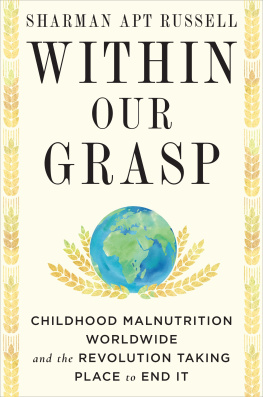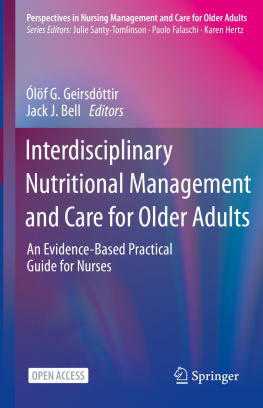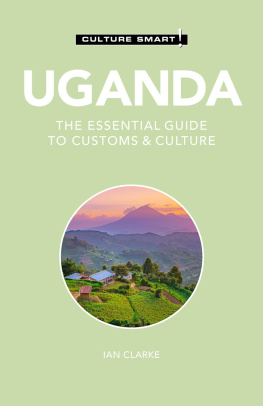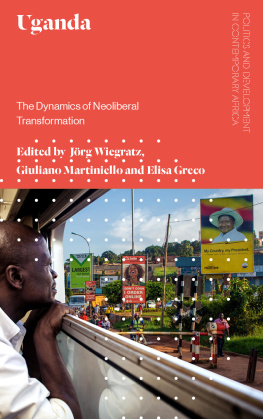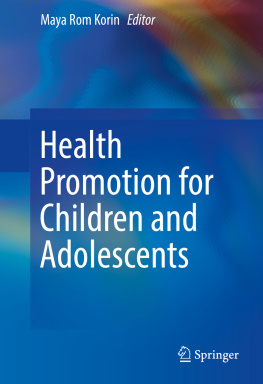THE RIDDLE OF MALNUTRITION
PERSPECTIVES ON GLOBAL HEALTH
Series editor: James L. A. Webb, Jr.
The History of Blood Transfusion in Sub-Saharan Africa, by William H. Schneider
Global Health in Africa: Historical Perspectives on Disease Control, edited by Tamara Giles-Vernick and James L. A. Webb, Jr.
Preaching Prevention: Born-Again Christianity and the Moral Politics of AIDS in Uganda, by Lydia Boyd
The Riddle of Malnutrition: The Long Arc of Biomedical and Public Health Interventions in Uganda, by Jennifer Tappan
THE RIDDLE OF MALNUTITION
The Long Arc of Biomedical and Public Health Interventions in Uganda
Jennifer Tappan
Ohio University Press
Athens, Ohio
Ohio University Press, Athens, Ohio 45701
ohioswallow.com
2017 by Ohio University Press
All rights reserved
To obtain permission to quote, reprint, or otherwise reproduce or distribute material from Ohio University Press publications, please contact our rights and permissions department at (740) 593-1154 or (740) 593-4536 (fax).
Printed in the United States of America
Ohio University Press books are printed on acid-free paper

27 26 25 24 23 22 21 20 19 18 17 5 4 3 2 1
Library of Congress Cataloging-in-Publication Data
Names: Tappan, Jennifer, author.
Title: The riddle of malnutrition : the long arc of biomedical and public health interventions in Uganda / by Jennifer Tappan.
Other titles: Perspectives on global health.
Description: Athens, Ohio : Ohio University Press, [2017] | Series: Perspectives on global health | Includes bibliographical references and index.
Identifiers: LCCN 2017006596| ISBN 9780821422458 (hc : alk. paper) | ISBN 9780821422465 (pb : alk. paper) | ISBN 9780821445914 (pdf)
Subjects: | MESH: Malnutritionprevention & control | Infant | Child | Public Health | Preventive Health Services | Uganda
Classification: LCC RA645.N87 | NLM WS 115 | DDC 362.1963/90096761dc23
LC record available at https://lccn.loc.gov/2017006596
Dedicated to
Wednesday, Oscar, and Sid
CONTENTS
PREFACE
In 2012, I returned to the East African country of Uganda to continue an investigation of past efforts to prevent a severe form of childhood malnutrition. My objective was to interview a new set of informants and follow up with the elderly women and men who had generously shared their time and memories with me in 2004. Even though nearly eight years had elapsed, both Nabanja Kaloli and Ephraim Musoke greeted me as an old friend. Musoke even skipped the customary handshake, welcomed me with a highly uncharacteristic embrace, and then held my hand through our entire visit. What was most striking was the number of young children in many of these households. Musoke, Kaloli, and others spoke to me about this either directly by telling me of their struggles to provide for the growing number of grandchildren in their care, or by joking that I should take this or that child with me. They were only half-joking. I was there to ask about severe acute childhood malnutrition. They politely answered my questions and provided the information I asked for, but they made sure I heard about the children orphaned by HIV/AIDS and how this was weighing on them in the final years of their lives. This misalignment of interests between foreign researchers and those on the ground is such a common critique of global health that it has become clich. When I first interviewed Musoke in 2004 and asked him what people in this part of Uganda did when a child became malnourished, he responded almost in exasperation. He would teach the parents to prepare a special food that both alleviates and prevents malnutrition. His exasperation spoke to the obviousness of the matter. It spoke to the fact that severe malnutrition was not a major problem in his community anymore, I should be asking about other things. But how severe acute malnutrition went from a major concern to one that invited exasperation is also a story that needs to be told.
In 2003, when I first decided to visit the Luteete Health Center, approximately thirty miles north of Ugandas capital city, Kampala, and several miles off the main tarmac road, I did not expect to find anything, I did not anticipate that I would ever return, and I certainly did not contemplate making Luteete the primary field site for this study. The Luteete Health Center was worth visiting, even if only once, because in the mid-1960s, a few years after Uganda achieved independence from British colonial rule, the health center became the first rural extension of Africas first nutrition rehabilitation program. A year later Luteete also became an epicenter of the violence perpetrated by Ugandas first prime minister, and for this reason it seemed unreasonable to expect the program to have made a lasting impact in the region. The program, which continues to serve severely malnourished children from the Mulago medical complex in the Ugandan capital, has been known since the mid-1960s as Mwanamugimu, the first word in a Luganda proverb (Mwanamugimu ava ku ngozi) often translated as A healthy child comes from a healthy mother. When I arrived at the Luteete Health Center and began inquiring about Mwanamugimu, I was repeatedly told that she was dead. After confirming that the problem was not one of translation and my fledgling facility with the Luganda language, I learned that one of the midwives who had spent much of her life working at the Luteete Health Center was known to the people who lived in this region as Mwanamugimu. Florence Mukasa had been so devoted to preventing severe acute malnutrition in young children that she continued teaching parents the principles of the Mwanamugimu program until the year she died. According to the women and men who have shared their stories with me over the years since that first visit, Florence Mukasa, and the Mwanamugimu program for which she was known, have had a considerable impact on nutritional health and wellbeing in the region served by the Luteete Health Center.
The Mwanamugimu program was part of a long history of nutrition work in Uganda and tracing that history involved weaving together highly disparate bodies of evidence. Archival materials that typically form the backbone of historical analysis, including memoirs, reports, and other documents held in England, Uganda, and the United States, have been key to my understanding of this history and its significance. The personal papers of physicians involved in the Mwanamugimu program and its extension to the Luteete Health Center furnished invaluable information on the innovative public health approach and its initial evolution. This material is complemented by a vast array of scientific publications and global health reports. Like the colonial archives that must be read with an eye to the imperial imperatives of their production, articles published in medical and scientific journals emphasize methods and results that make them rich in details of specific procedures and findings, but poor sources of information on the highly situated and variable nature of biomedical research. Individual people, dates, and other contingent factors are explicitly absent in accounts that present data as conclusive and universal. Extracting evidence from such sources entails unearthing a human story that is intentionally left out. Reports published by international agencies like the World Health Organization (WHO) and the United Nations Childrens Fund (UNICEF) also extrapolate data of universal application from the local specificity of medical work and require a methodological approach intent on reading the local back in. My methodology also involved remaining attentive to the different registers of scale on which the history of nutrition work in Uganda operated, from the local, to the colonial and later national, to the global, and back again.


